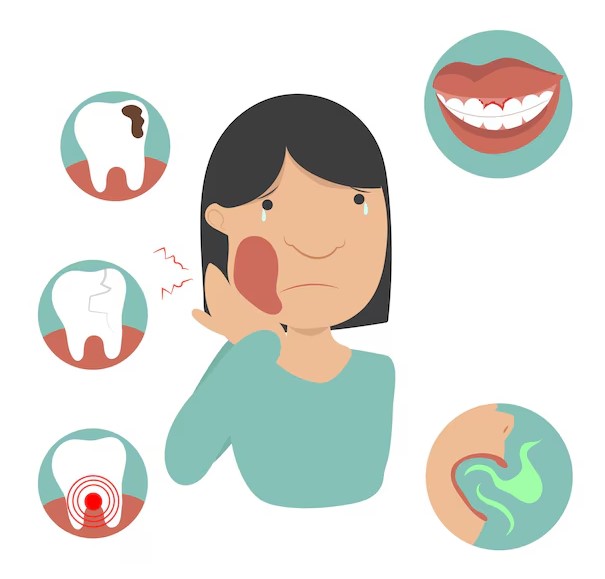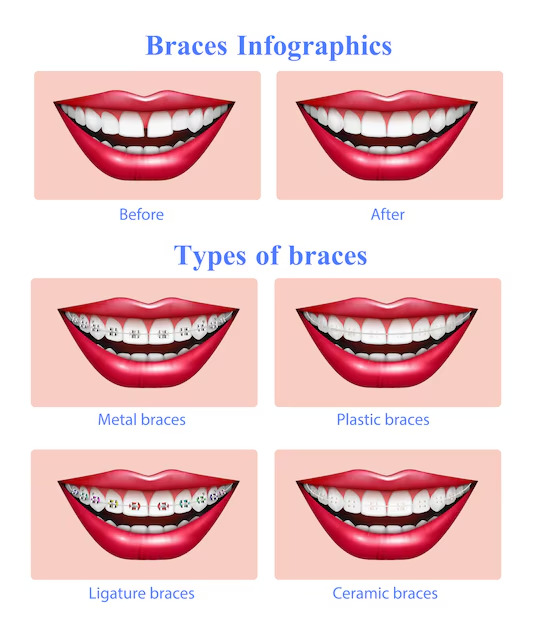Tooth sensitivity is a common dental problem that can cause significant discomfort and interfere with daily activities like eating, drinking, and even breathing in cold air. Understanding the causes of tooth sensitivity is the first step towards finding effective solutions. In this blog post, we will discuss the various factors that contribute to tooth sensitivity and provide insights into how you can manage this condition.
What is Tooth Sensitivity?
Tooth sensitivity, also known as dentin hypersensitivity, is a condition characterized by sharp, temporary pain in one or more teeth. This pain often occurs in response to certain stimuli, such as hot, cold, sweet, or acidic foods and drinks, or even during brushing and flossing.
Common Causes of Tooth Sensitivity
Understanding the root causes of tooth sensitivity is crucial for effective treatment. Here are the primary factors that can lead to this uncomfortable condition:
1. Enamel Erosion
Enamel is the hard, protective outer layer of your teeth. When enamel wears away, the underlying dentin, which contains microscopic tubules, becomes exposed. These tubules allow stimuli to reach the nerves inside the tooth, causing pain and sensitivity.
Causes of Enamel Erosion:
- Acidic foods and drinks (e.g., citrus fruits, soda, wine)
- Acid reflux disease
- Frequent vomiting (as seen in bulimia or morning sickness)
- Aggressive brushing with a hard-bristled toothbrush
2. Gum Recession
Gum recession occurs when the gum tissue around the teeth pulls back, exposing the roots of the teeth. The roots do not have an enamel layer and are more sensitive to external stimuli.
Causes of Gum Recession:
- Periodontal (gum) disease
- Aggressive tooth brushing
- Poor oral hygiene
- Tobacco use
3. Tooth Decay and Cavities
Cavities and tooth decay can lead to tooth sensitivity by creating holes in the enamel, exposing the dentin underneath.
Causes of Tooth Decay:
- Poor oral hygiene
- High sugar diet
- Not getting enough fluoride
- Dry mouth
4. Cracked or Chipped Teeth
Cracks or chips in teeth can expose the dentin or even the inner pulp, leading to sensitivity and pain.
Causes of Cracked or Chipped Teeth:
- Trauma or injury to the mouth
- Biting down on hard foods or objects
- Teeth grinding (bruxism)
5. Dental Procedures
Certain dental procedures can cause temporary tooth sensitivity. This usually subsides after a few days.
Procedures Leading to Sensitivity:
- Teeth whitening
- Fillings
- Crowns
- Root planing
6. Bruxism (Teeth Grinding)
Grinding your teeth can wear down the enamel, leading to sensitivity. This is often caused by stress or misaligned teeth.
Causes of Bruxism:
- Stress and anxiety
- Sleep disorders
- Malocclusion (misaligned teeth)
Managing Tooth Sensitivity
Once the cause of tooth sensitivity is identified, appropriate measures can be taken to manage and reduce discomfort.
1. Proper Oral Hygiene
Maintaining good oral hygiene is crucial. Use a soft-bristled toothbrush and fluoride toothpaste designed for sensitive teeth. Avoid brushing too hard and use gentle, circular motions.
2. Diet Adjustments
Limit intake of acidic foods and drinks. Rinse your mouth with water after consuming acidic substances to neutralize the acids.
3. Dental Treatments
Consult your dentist for treatments that can help with tooth sensitivity. These may include:
- Fluoride treatments
- Desensitizing toothpaste
- Dental bonding
- Gum grafts
4. Addressing Underlying Conditions
Treat underlying issues such as gum disease or bruxism. Your dentist may recommend night guards for teeth grinding or specific treatments for periodontal disease.
5. Avoid Abrasive Products
Avoid using abrasive toothpaste and whitening products that can further wear down enamel.
When to See a Dentist
If tooth sensitivity persists despite following these tips, it is important to consult a dentist. Persistent sensitivity may indicate a more serious underlying condition that requires professional intervention.
Tooth sensitivity can be a bothersome condition, but understanding its causes and taking proactive steps can significantly reduce discomfort. By maintaining good oral hygiene, making dietary adjustments, and seeking appropriate dental care, you can manage and even prevent tooth sensitivity effectively.
Taking care of your teeth and gums not only helps alleviate sensitivity but also contributes to overall oral health, ensuring a bright and pain-free smile.
Frequently Asked Questions About Tooth Sensitivity
Tooth sensitivity can be a confusing and frustrating issue for many people. Below are some frequently asked questions (FAQs) that can help you better understand this condition and how to manage it.
Can Tooth Sensitivity Go Away on Its Own?
Tooth sensitivity can sometimes go away on its own, especially if it’s caused by a temporary condition, such as a recent dental procedure. However, if sensitivity persists, it’s important to see a dentist to identify and treat the underlying cause.
Can Whitening Toothpaste Cause Sensitivity?
Yes, whitening toothpaste can sometimes cause sensitivity due to its abrasive ingredients that can wear down enamel over time. If you experience sensitivity, consider switching to a toothpaste designed for sensitive teeth.
Is Tooth Sensitivity a Sign of a Cavity?
Tooth sensitivity can be a sign of a cavity, especially if it’s localized to a specific tooth. However, sensitivity can also be caused by other factors. A dentist can provide an accurate diagnosis.
Can a Toothbrush Cause Tooth Sensitivity?
Using a hard-bristled toothbrush or brushing too aggressively can wear down enamel and cause gum recession, both of which can lead to tooth sensitivity. Switching to a soft-bristled toothbrush and using gentle brushing techniques can help prevent this.
Can Stress Cause Tooth Sensitivity?
Stress can lead to teeth grinding (bruxism), which can wear down enamel and cause sensitivity. Managing stress through relaxation techniques and using a nightguard can help reduce this issue.



